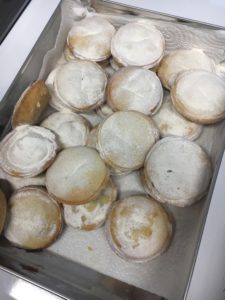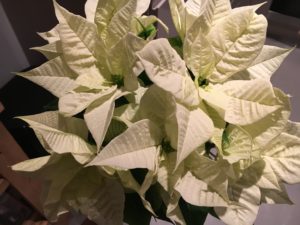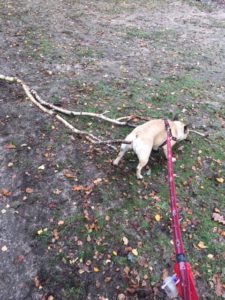Christmas is an exciting time of year, with lots of new food, gifts and decorations around the house. Many of us are familiar with common toxins but, during the busy festive period, it can be easy to leave them lying around for our curious pets to investigate!
 Christmas Comfort Food. Everyone enjoys over-indulging at Christmas but, for our family pets, many treats we enjoy are hazardous to their health. Stick to pet treats and keep the following well out of reach to avoid illness over Christmas!
Christmas Comfort Food. Everyone enjoys over-indulging at Christmas but, for our family pets, many treats we enjoy are hazardous to their health. Stick to pet treats and keep the following well out of reach to avoid illness over Christmas!
Chocolate contains a substance called Theobromine, a substance similar to caffeine. If ingested it can cause agitation, excitability, tremors, convulsions and problems with the heart. The concentration varies with the level of cocoa, only a small amount of dark chocolate can be very dangerous. Don’t hang chocolates on the Christmas tree. Put presents containing chocolate high and out of reach, not under the Christmas tree
Grapes, Raisins, Sultanas and Currants are toxic to dogs, causing severe kidney failure. The amount required to cause failure varies from pet to pet, the smallest amount can potentially be fatal. Mince pies, Christmas cake and Christmas pudding should be kept well out of reach. Beware of leaving baked goods to cool in places pets can reach
Onions, Leeks, Garlic and Shallots can cause gastro-intestinal upsets including vomiting and diarrhoea. They can also result in damage to red blood cells causing anaemia several days after ingestion. Sage and Onion stuffing or Onion gravy are common culprits
Macadamia Nuts cause lethargy, increased body temperature, tremor, lameness and stiffness in dogs. Other nuts are less toxic but may cause gastro-intestinal upsets.
Leftovers can potentially contain mould spores which are not visible to the naked eye. Ingestion of mouldy food can cause vomiting, tremors, a high body temperature and convulsions.
Alcohol can cause similar signs as seen in people after a few too many! Pets have a lower tolerance to alcohol, a small amount can make them wobbly and drowsy. In severe cases there is a risk of low body temperature, low blood sugar and coma.
Most plants commonly found around the home at Christmas time are inedible so, if ingested, cause signs of gastrointestinal upset and salivation. Plants to watch out for include:
- Poinsettia (Euphorbia pulcherrima)
- Holly (Ilex species)
- Mistletoe (Viscum album)
- Christmas trees
- Ivy (Hedera species)
- Christmas cactus (Schlumbergera species)
Lilies can quickly cause kidney failure in cats, especially the pollen. If your cat has come into contact with lilies please seek veterinary advice.
Decorations; Tinsel and ribbons are often ingested, particularly by cats, and can cause obstructions. Pot Pourri can cause significant gastro-intestinal upset and abdominal pain for several days
Toys; mall toys may be ingested causing an obstruction. Batteries are often lying around with so many toys, and pose a risk if chewed or swallowed
Wrappings; Wrapping paper or ribbons may be ingested causing an obstruction. Silica gel – sachets found in some gifts e.g. handbags or electronic goods may swell in the stomach if ingested and also cause an obstruction
Environmental Risks
Anti-freeze often contains Ethylene Glycol, which causes kidney failure. Cats are particularly susceptible, and subtle signs may not be apparent until hours after ingestion. There is an antidote available but must be administered quickly to be effective. Please see the International cat care website for more information on anti-freeze toxicity.
Rock Salt is often used to salt roads and prevent them freezing, getting in paws and on fur easily. Ingestion can cause elevated sodium levels in the blood leading to diarrhoea, vomiting, lethargy and thirst, severe amounts can cause convulsions and comas. Wash paws after walking if they are licking salt off their paws.
If you think your pet has ingested a poison:
- Remove the source of the poison
- Contact our emergency line on 01606 880 890
- Do NOT try to make your pet vomit
- Try to collect a sample of the poison to bring to us







